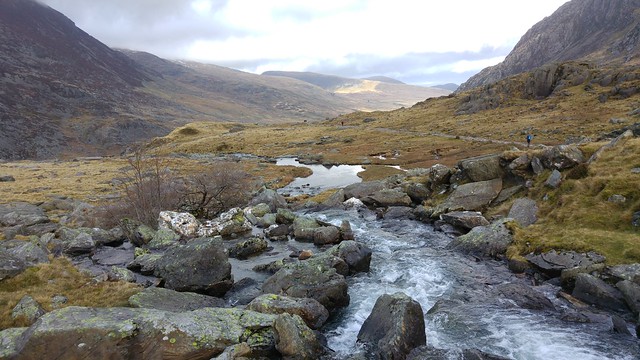Today we’re looking at the words for moon, Monday and related things in Celtic languages.
Words marked with a * are reconstructions.
| Proto-Celtic | *louxsnos = (?) |
|---|---|
| Old Irish (Goídelc) | lúan = moon, Monday, radiance |
| Middle Irish (Gaoidhealg) | lúan [ˈl͈uːə̯nʲ] = moon, Monday, doomsday, judgement day día lúain [dʲiːə̯ ˈl͈uːə̯nʲ] = (on) Monday |
| Irish (Gaeilge) | Luan [l̪ˠuən̪ˠ] = Monday, Aureole, nimbus, halo Dé Luain [dʲeːˈl̪ˠuənʲ] = (on) Monday |
| Scottish Gaelic (Gàidhlig) | Luan [l̪ˠuən] = Monday, the moon (poetic) Diluain [dʲɪˈl̪ˠuən̪ʲ] = Monday |
| Manx (Gaelg) | luan, lune = moon Jelune, Jyluain, Lhein, Luain = Monday |
| Middle Welsh (Kymraec) | llun = Monday, (the) moon |
| Welsh (Cymraeg) | llun, Llun [ɬɨːn /ɬiːn] = Monday, (the) moon dydd Llun [dɨːð ˈɬɨːn / diːð ˈɬiːn] = Monday |
| Middle Cornish | lin = the moon di-lin, De Lun = Monday |
| Cornish (Kernewek) | Lun = Monday dy’Lun, de Lun = Monday |
| Breton (Brezhoneg) | Lun = the moon dilun [di.ˈlỹːn] = Monday |
Etymology from PIE *lówksneh₂ (moon, shining thing), from *lewk- (to shine, to see, bright) [source].
Words from the same PIE roots include illumiate, light, lucent, lucid, Lucifer, luminous, lunar, lustre, and lynx in English [source].
Etymology (Monday words) from Latin *diēs Lūnae (Monday), from diēs (day) and Lūna (the moon, Luna [a moon goddess]), or calques of this word [source].
Words from the same roots include dilluns (Monday) in Catalan, dilunes (Monday) in Occitan, and dilon (Monday) in Walloon [source].
| Proto-Celtic | *lugrā = moon |
|---|---|
| Proto-Brythonic | *lloɨr = moon *lloɨrkann = moonlight |
| Old Welsh (Kembraec) | loyr = moon loiraul = lunar |
| Middle Welsh (Kymraec) | lloer = moon lloerferch = one as fair as the moon, fair maiden, beautiful woman lloergan = (bright) moonlight, moonlit lloeric = lunatic, moonstruck, insane, mad, frantic, wild, lunar lloerol = lunar |
| Welsh (Cymraeg) | lloer [ˈɬoːɨ̯r /ˈɬɔi̯r] = (the) moon, satellite lloeraidd = lunar, lunatic lloeren = circle, round spot, satellite, little moon lloerennol = satellite, pertaining to the moon lloergan = (bright) moonlight, moonlit lloergannu = to shine (of the moon) lloeri = to crook like the new moon, make cresent-shaped lloerig = lunatic, moonstruck, insane, mad, frantic, wild, lunar |
| Old Cornish | luir = moon |
| Middle Cornish | loer, lor, lôr, loor, lour, lûr = moon |
| Cornish (Kernewek) | loor = moon lorel = lunar lorell = satellite lorek, loroges = lunatic, maniac, psychotic |
| Old Breton (Brethonoc) | loir, loer = moon |
| Middle Breton (Brezonec) | loar = moon loer cann = full moon |
| Breton (Brezhoneg) | loar = moon loargann = full moon loarieg = lunatic |
Etymology from PIE *lewk- (bright, light, to shine, to see), or from *lewg- (to bend, twist) [source].
| Middle Welsh (Kymraec) | lleuad, lleuat = moon lleuadic = mad, lunatic |
|---|---|
| Welsh (Cymraeg) | lleuad [ˈɬeɨ̯.ad /ˈɬei̯.ad] = the moon lleuadu = to crook like the new moon, make cresent-shaped lleuadaidd = lunar lleuadig = mad, lunatic lleuadog = lunar, moon-like, moonlit, lunatic, moonstruck, mad, insane |
Etymology from PIE *lewk- (bright, light, to shine, to see). Related to lleu (light, brightness) and golau (light, bright, fair) in Welsh [source].
| Proto-Celtic | *ēskyom = moon |
|---|---|
| Old Irish (Goídelc) | éscae, aesca, æscae, ésca, æscæ, éisce [ˈeːske] = moon, lunar month éscaide = lunar |
| Middle Irish (Gaoidhealg) | éscae = moon éscaide = lunar |
| Irish (Gaeilge) | éasca [ˈiːɑ̯skə / ˈeːsˠkə] = moon éascaí = lunar |
| Scottish Gaelic (Gàidhlig) | èsga [eːsgə] = moon (archaic) |
| Manx (Gaelg) | eayst = moon, lunar lane-eayst = full moon |
Etymology from PIE *h₁eysk- (to shine, glitter) [source].
| Middle Irish (Gaoidhealg) | gelach = moon |
|---|---|
| Irish (Gaeilge) | gealach [ɟəˈl̪ˠɑx / ˈɟalˠəx] = moon, brightness (as of moon), moonlight |
| Scottish Gaelic (Gàidhlig) | gealach [gʲal̪ˠəx] = (the) moon gealach làn = full moon gealachail [gʲal̪ˠəxal] = lunar gealachan [gʲa̪ˠəxan] = lunatic |
| Manx (Gaelg) | giallagh = moon |
Etymology from Old Irish gel (fair, white, bright), from Proto-Celtic *gelos (shining, white), from PIE *ǵʰelh₃os, from *ǵʰelh₃- (to shine) [source].
Words from the same roots include words for white, bay and brown in Celtic languages, and arsenic, gall, gild, gild, gold and yellow in English [source].
| Old Irish (Goídelc) | ré = moon |
|---|---|
| Middle Irish (Gaoidhealg) | ré, re = the moon |
| Irish (Gaeilge) | ré = moon, phase of the moon, month, period, portion of time, span of life, career, age, era, epoch na ré = lunar (oíche) rédhorcha = moonless |
| Scottish Gaelic (Gàidhlig) | rè [r̪eː] = the moon (poetic) |
| Manx (Gaelg) | re, ray = moon |
Etymology possibly from Proto-Celtic *rowis [source].
Another word for moon in Welsh is cannwyll awyr (“sky candle”), and the word cannaid (white, bright, shining, pure, clean radiant) used to mean moon in Carmarthenshire (and sun in north Wales).
Sources: Wiktionary, Am Faclair Beag, Online Manx Dictionary, Teanglann.ie, eDIL – Electronic Dictionary of the Irish Language, In Dúil Bélrai English – Old Irish glossary, An Etymological Dictionary of the Gaelic Language, Geiriadur Prifysgol Cymru, Gerlyver Kernewek, Dictionaire Favereau, TermOfis, English – ProtoCeltic WordList (PDF), Etymological Dictionary Of Proto Celtic














